Pears are a nutritious and low-calorie fruit, making them a healthy snack option. However, consuming too many pears may lead to weight gain due to their high plant fat content. Moderation is key to maintaining a healthy weight. Read on to learn more about the calories and nutrition in pears, as well as their health benefits and potential weight gain concerns.
1 How Many Calories Are in 100g of Pears?
For those who enjoy snacking on fruits, pears are a delightful choice with their yellow to light green skin and crisp, juicy flesh that offers a refreshing sweet taste.
On average, 100g of pear provides approximately 50-60 calories to the body. This means that a medium-sized pear weighing between 400-600g contains around 200-360 calories.
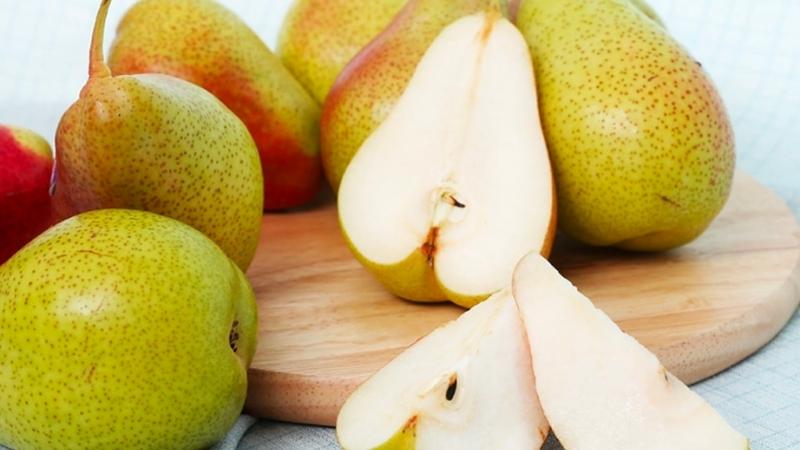 How Many Calories Are in 100g of Pears?
How Many Calories Are in 100g of Pears?
2 Nutritional Profile of Pears
According to research and data from the USDA National Nutrient Database, a 178g pear contains the following nutrients:
- 27g of carbohydrates (including 17g of sugar and 6g of fiber)
- 1g of protein
- 12% of the daily value for vitamin C
- 6% of the daily value for vitamin K
- 10% of the daily value for potassium
- Additional nutrients such as antioxidants, carotenoids, folate, riboflavin, and flavonols
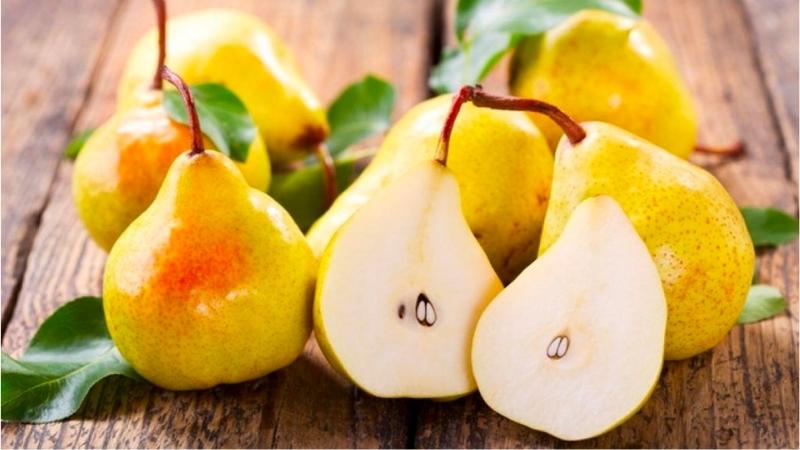 Nutritional Profile of Pears
Nutritional Profile of Pears
3 Health Benefits of Eating Pears
Rich in Fiber
The high fiber content in pears is beneficial for digestive health. It helps support regular bowel movements, prevent constipation and diarrhea, and control blood sugar levels.
Protection Against Free Radical Damage
Pears are also rich in antioxidants like copper, vitamin K, and vitamin C, which help protect the body from the harmful effects of free radicals.
 Health Benefits of Eating Pears
Health Benefits of Eating Pears
Boosted Immune System
The combination of vitamins C and K, along with minerals like folate, magnesium, zinc, and calcium, helps strengthen the immune system and reduce feelings of fatigue and weakness. It also protects DNA, enhances metabolism, and prevents cell mutations.
Lowered Risk of Diabetes
The abundant anthocyanins in pears play a role in preventing and reducing the risk of developing diabetes.
Improved Heart Health
Pears contain pectin and fiber, which contribute to lower cholesterol levels in the blood, while their antioxidants help reduce the risk of cardiovascular diseases and stroke.
4 Do Pears Make You Fat?
While pears are nutrient-dense and high in fiber, they are relatively low in calories, with only about 57 calories per 100g of pear flesh. This means that they are unlikely to cause weight gain, and if consumed in moderation, they can even aid in weight loss.
A medium-sized pear typically contains around 6g of fiber, which is equivalent to one-quarter of the daily fiber requirement for an individual. This fiber content helps reduce the absorption of fat in the body.
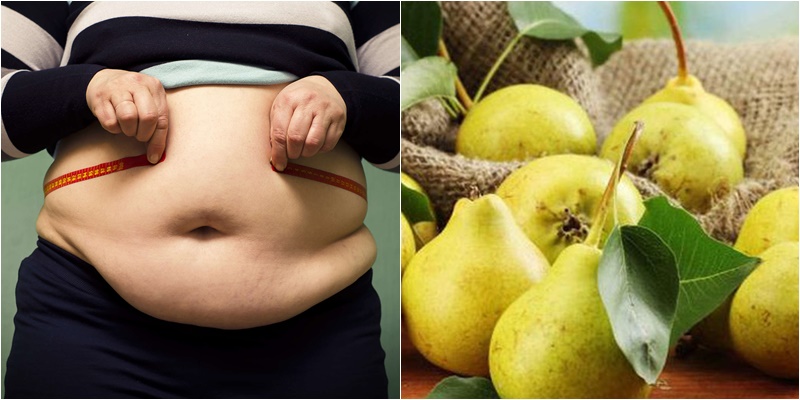
Additionally, according to Dr. Lola O’Rourke of the American Nutrition Association, the spongy nature of the fiber in pears helps create a sense of fullness and satiety. This means that you are less likely to overeat and can better control your weight.
5 Are Pears Good for Weight Loss?
While pears are beneficial for health and do not cause weight gain when consumed in moderation, eating too many pears may lead to weight gain due to their high plant fat content.
On average, men require about 35g of fiber per day, while women need around 25g. Therefore, eating 1-2 pears per day is sufficient and can aid in weight management while providing essential nutrients.
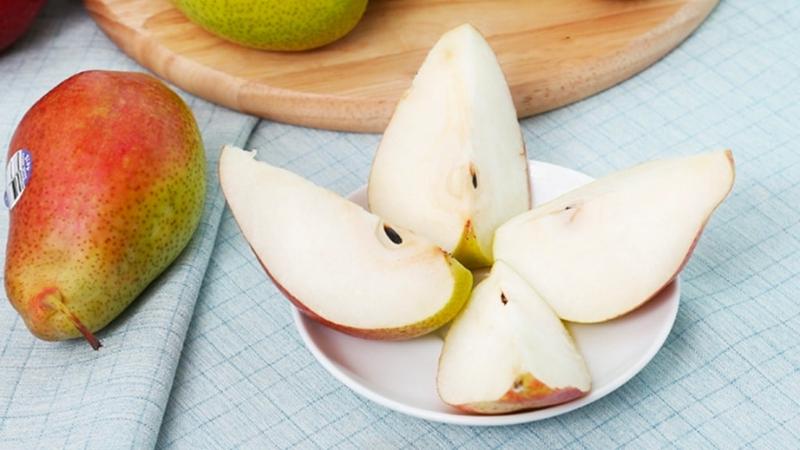 Are Pears Good for Weight Loss?
Are Pears Good for Weight Loss?
6 How to Eat Pears for Effective Weight Loss
Consuming 1-2 pears per day is recommended, and there are various ways to include them in your diet beyond just eating them raw. Try pear juice, pear smoothies, apple-pear juice blends, or combinations of pears with honey, or incorporate them into your meals along with other fruits and vegetables for a balanced diet.
Additionally, regular exercise such as yoga, gym workouts, dancing, aerobics, cycling, or running can help burn excess energy and support your weight loss journey.
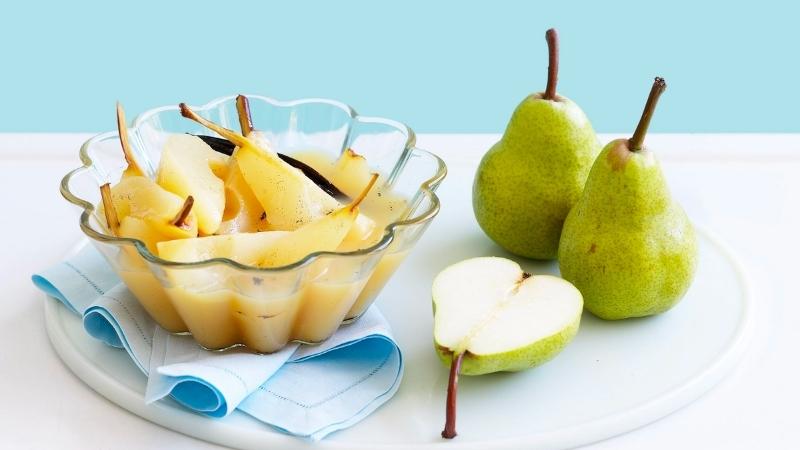 How to Eat Pears for Effective Weight Loss
How to Eat Pears for Effective Weight Loss
7 When Is the Best Time to Eat Pears?
Avoid eating pears as a replacement for meals. Instead, eat a pear or drink a glass of pear juice before each meal to enhance weight loss.
During the day, when you feel hungry, you can also make a salad with chopped pears, apples, and bananas or prepare a pear smoothie to fill your stomach and satisfy your hunger.
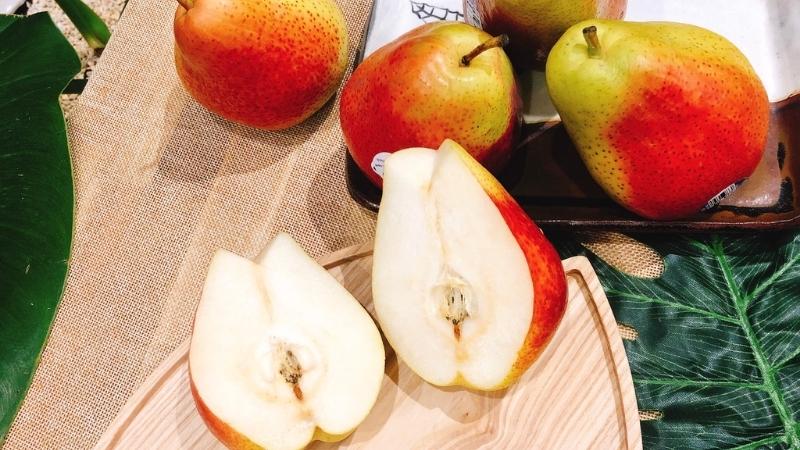 When Is the Best Time to Eat Pears?
When Is the Best Time to Eat Pears?
Pear Tart
Pear Tart is a French delicacy that has gained popularity in Vietnam. Although it may seem intricate, preparing a pear tart is relatively simple. With just a few easily accessible ingredients, you can create a delicious treat with a creamy texture and a hint of almond and cinnamon, making it a unique and addictive dessert.
For more information:
 Pear Tart
Pear Tart
Pear Dessert Soup
Pear dessert soup is a unique and mouthwatering dish. With just a few simple steps, you can create a delightful treat by boiling jujube, wolfberry, and rock sugar, then adding pear to create a sweet and mild-tasting dessert.
For more information:
 Pear Dessert Soup
Pear Dessert Soup
Mango Pear Juice
If you’re a fan of fruit juices, you’ll definitely want to try mango pear juice. Simply cut the fruit into small pieces and blend them together to create a refreshing and tasty drink.
For more information:
 Mango Pear Juice
Mango Pear Juice
9 Precautions When Eating Pears
- Since the highest concentration of fiber is found in the pear’s skin, it is recommended to consume the pear with its skin intact to maximize weight loss benefits.
- Avoid consuming pears with certain foods such as amaranth, goose meat, and turnips.
- Additionally, individuals with gastrointestinal issues or other stomach-related conditions should exercise caution when consuming pears to prevent exacerbating their symptoms.
For more information:
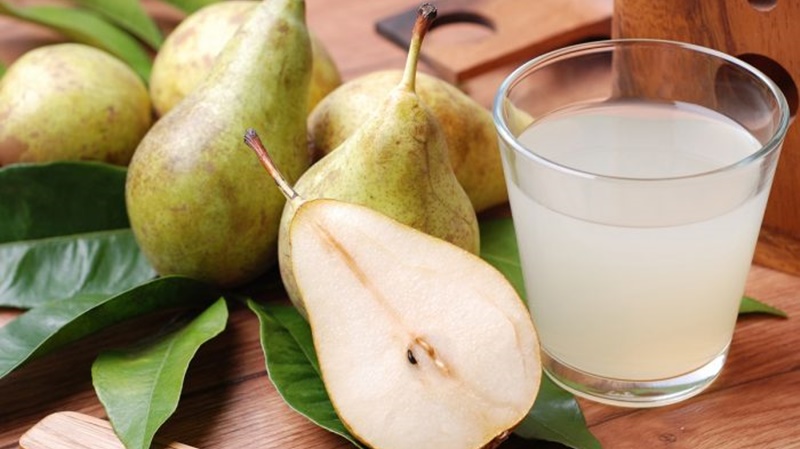
10 Frequently Asked Questions About Pears
Do Pears Contain a Lot of Sugar?
A 178g pear typically contains around 17g of sugar, which is not a significant amount. Therefore, even individuals with diabetes can safely consume pears without worrying about their sugar intake.
Do Pears Cause Heat in the Body?
Contrary to popular belief, eating pears does not increase body heat. Instead, they have a cooling effect, detoxifying properties, and diuretic effects, making them beneficial for the liver and helping to cool the body during hot summer days.
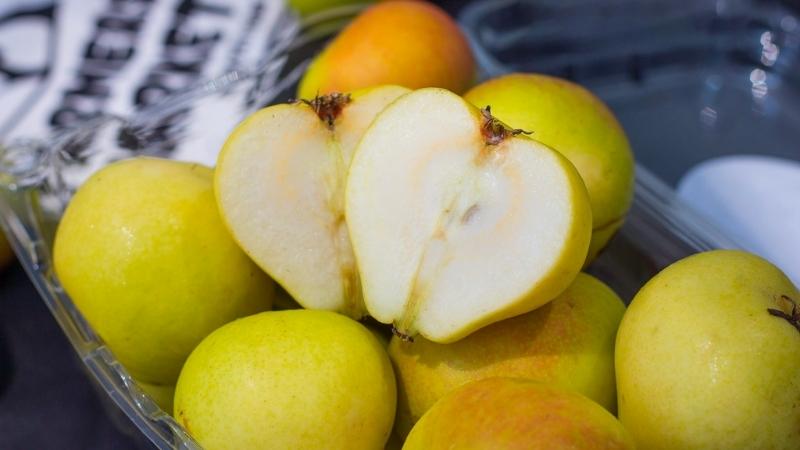 Frequently Asked Questions About Pears
Frequently Asked Questions About Pears
Are Pear Skins Good for You?
Research has shown that pear skins offer health benefits due to their anti-inflammatory and detoxifying properties. In traditional Chinese medicine, pear skins are used to treat sore throats, pneumonia, coughs, and colds.
However, it is important to ensure that the pears have not been treated with chemical pesticides, as these can be harmful if consumed.
Are Pears Safe for Pregnant Women?
Pears are generally considered safe for pregnant women and provide essential nutrients for both the mother and the developing fetus without causing breast milk blockage, as some may fear.
Nevertheless, pregnant women should still choose pears with clear origins and wash them thoroughly to avoid any potential complications during pregnancy.
For more information:
Now you know all about the nutritional value and potential weight gain concerns associated with pears. Remember to eat pears in moderation to maintain a healthy weight, and feel free to share your thoughts and experiences with us in the comments below!

































